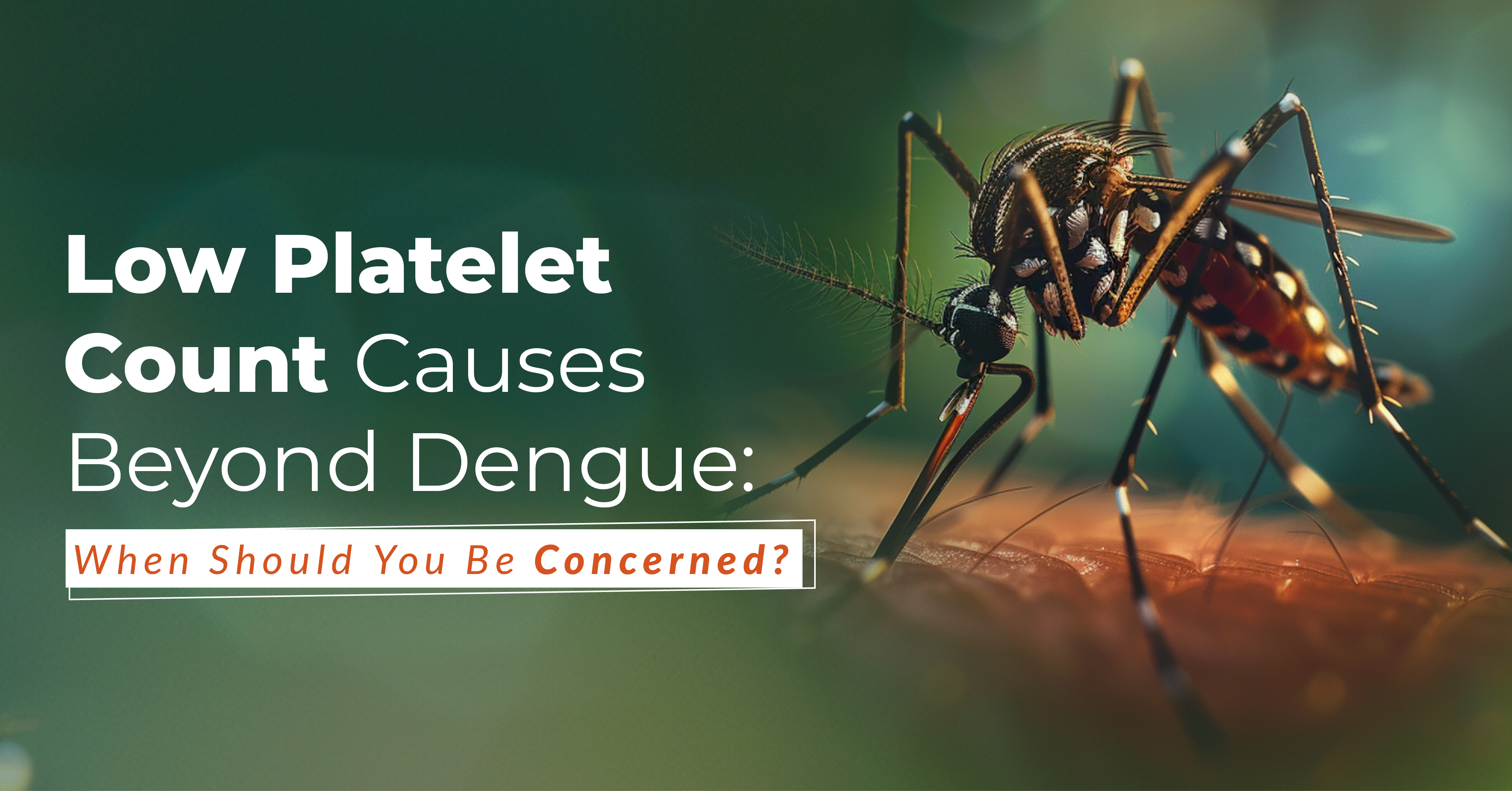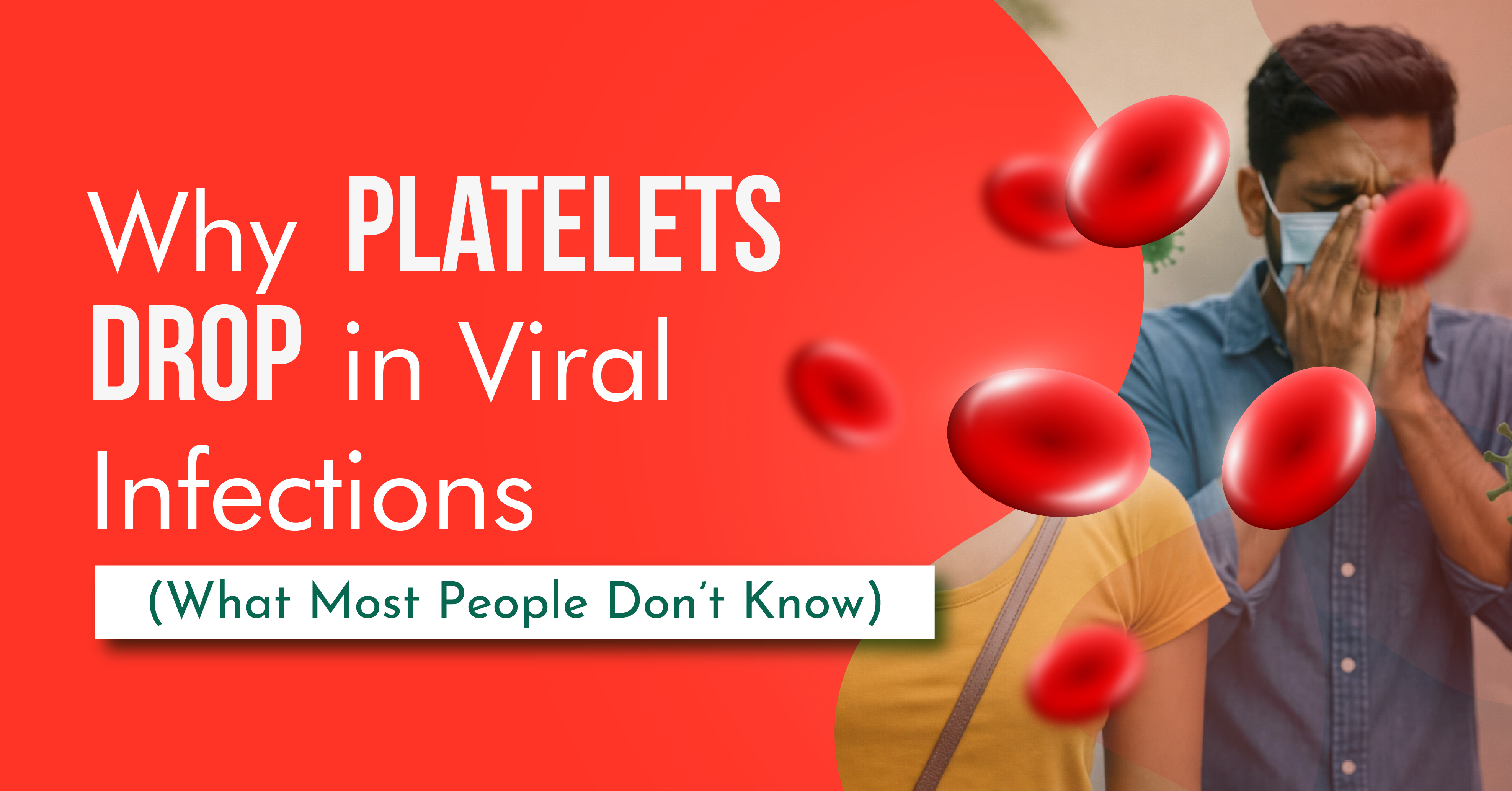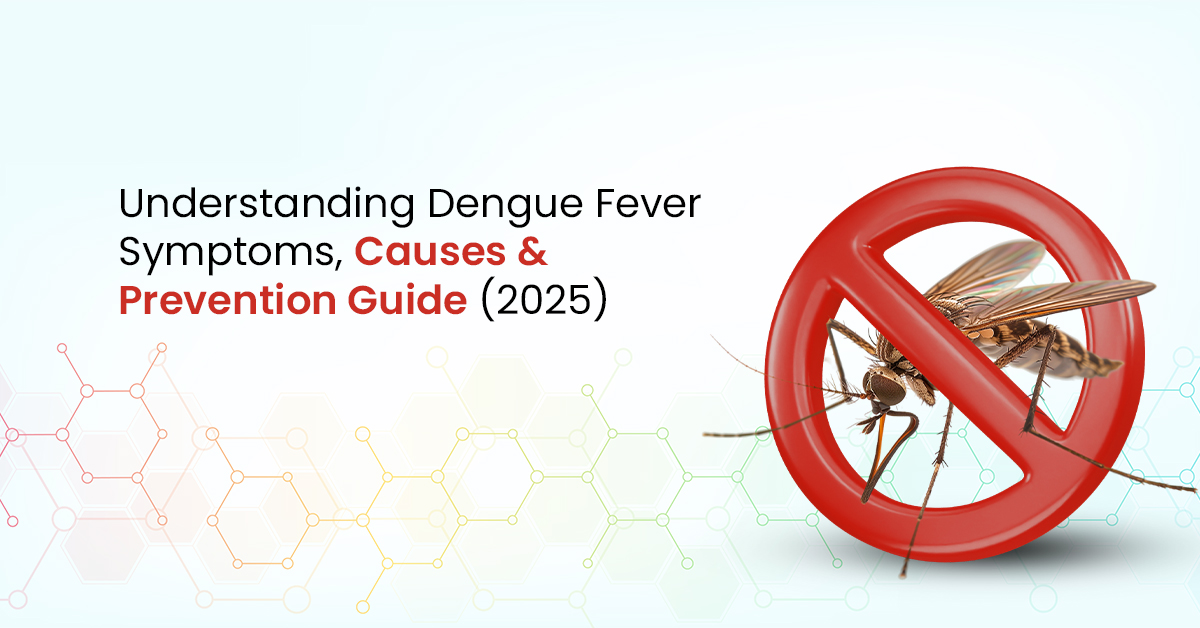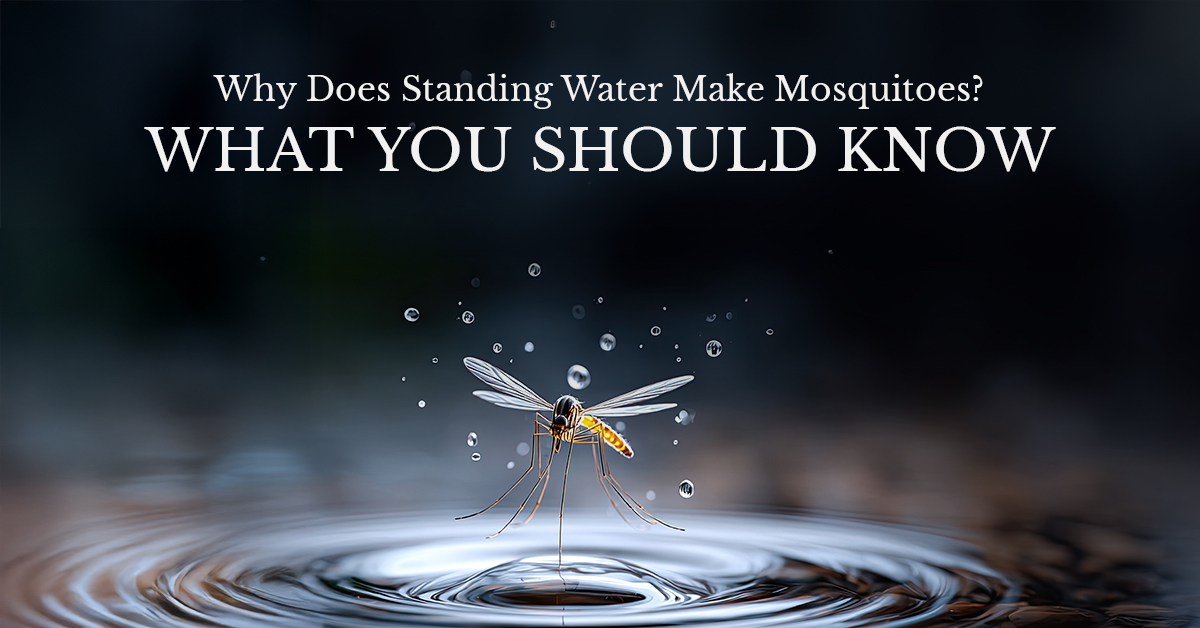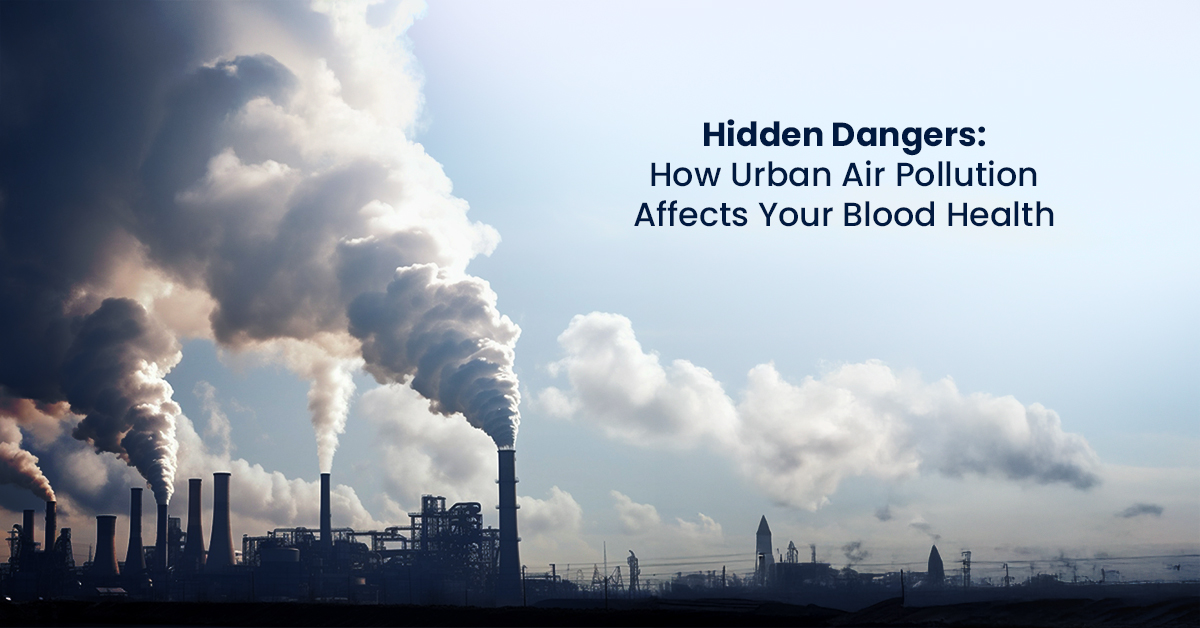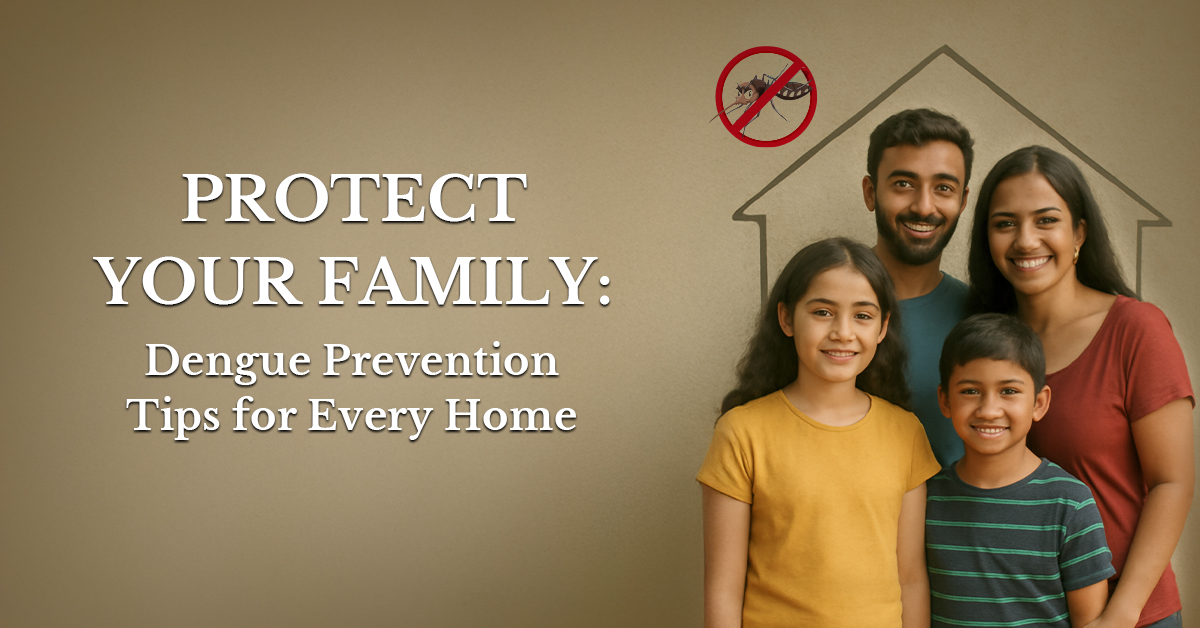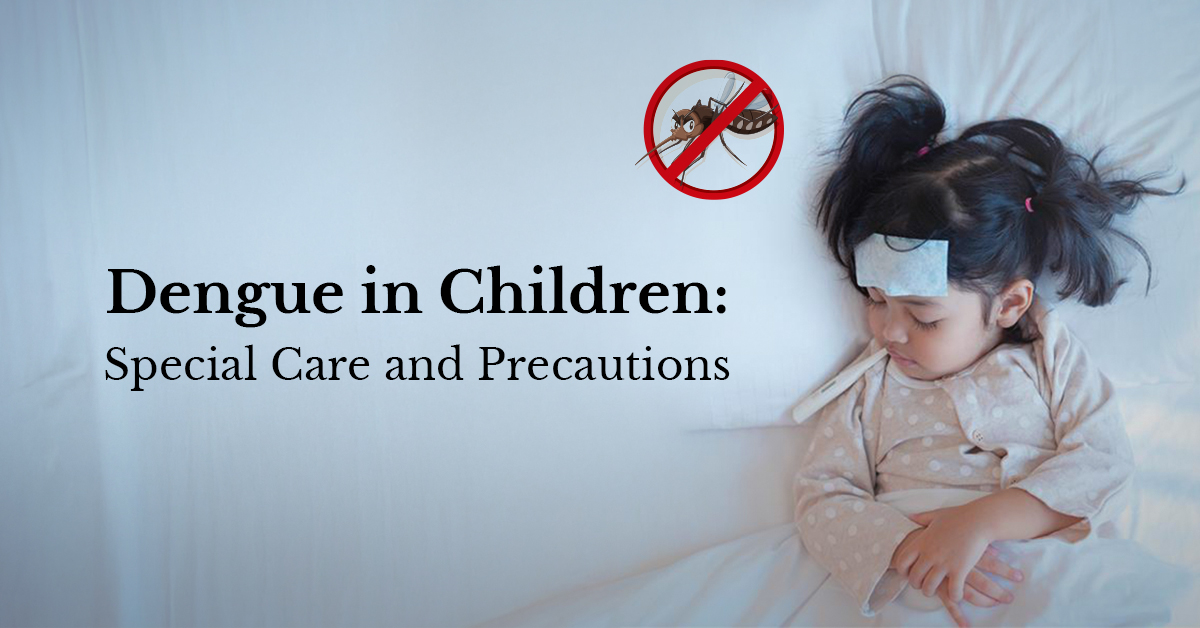Table of Contents

12 Jul, 2025
Warning Dengue Symptoms: Know the Signs
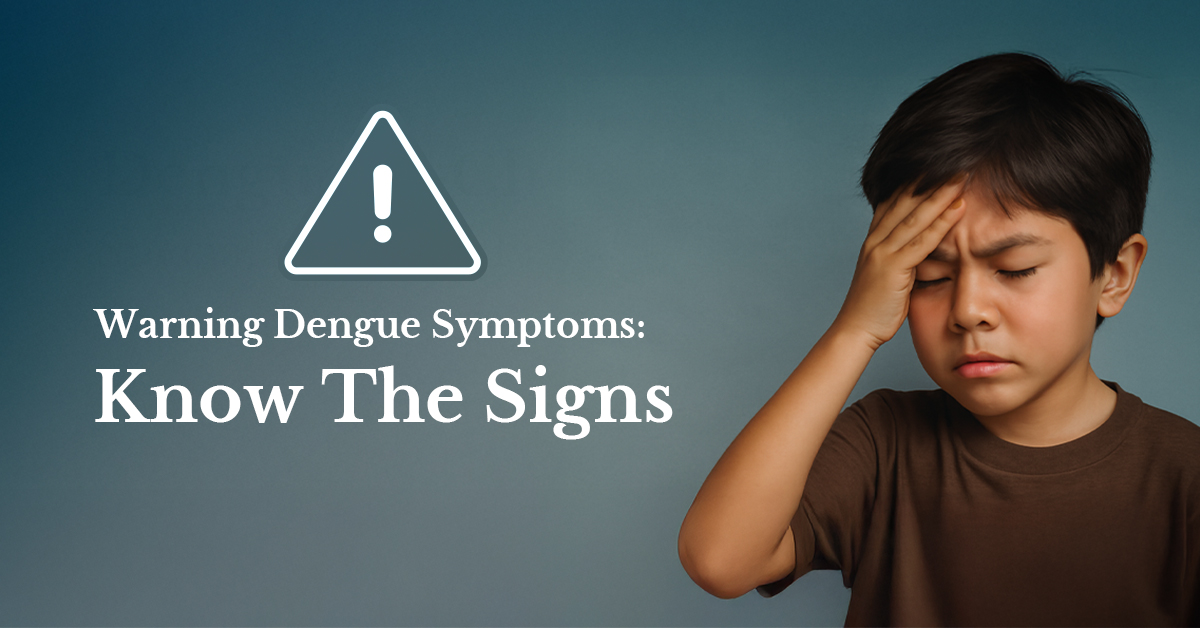
Introduction
Dengue fever is a mosquito-borne viral illness transmitted by the Aedes mosquito. Although it can affect anyone, recognising symptoms early is crucial to prevent complications. Dengue progresses in clear stages, and if ignored, it can advance into severe conditions such as Dengue Haemorrhagic Fever (DHF) or Dengue Shock Syndrome (DSS). This blog explains the key symptoms, how they appear in each phase, and what immediate steps to take.
Understanding Dengue and How It Affects the Body
Dengue is caused by four related serotypes-DENV-1, DENV-2, DENV-3, and DENV-4. Once infected, the virus multiplies in the bloodstream, triggering an immune response. This response leads to fever, pain, rash, and inflammation.
Dengue typically appears in three phases:
- Febrile Phase
- Critical Phase
- Recovery Phase
Knowing the symptoms of each stage helps with early identification and timely care.
Common Symptoms of Dengue
High FeverThe first symptom is usually a sudden high fever, often reaching 104°F (40°C). This may be accompanied by chills and sweating.
Severe HeadacheIntense headaches, especially behind the eyes (retro-orbital pain), are very typical of dengue.
Joint and Muscle PainOften called "breakbone fever," dengue causes severe body pain affecting the back, limbs, and joints.
Skin RashA rash may appear early or later in the illness, usually spread across the torso, arms, and legs.
Nausea and VomitingSome individuals experience nausea, abdominal discomfort, or vomiting.
FatigueAs the fever reduces, extreme tiredness and weakness may continue for several days.
Mild BleedingNosebleeds, gum bleeding, or easy bruising can occur. These are warning signs that must not be ignored.
Phases of Dengue and Symptom Progression
1. Febrile Phase (Days 1-7)
Symptoms include:
- Sudden high fever
- Severe headache
- Muscle and joint pain
- Rash
- Nausea or vomiting
- Mild bleeding
During this phase, hydration is crucial. Paracetamol may be used for fever but avoid aspirin or ibuprofen as they increase bleeding risk.
2. Critical Phase (Days 3-7)
Some patients move into the critical phase as the fever drops. Warning signs include:
- Sudden fall in temperature
- Severe abdominal pain
- Rapid breathing
- Restlessness or fatigue
- Bleeding (nose, gums, stools, or vomit)
This stage is dangerous due to fluid leakage that can lead to DSS or DHF. Hospital monitoring is recommended if these symptoms appear.
3. Recovery Phase (Days 7-10)
During recovery:
- Appetite gradually improves
- Fluid returns to normal levels
- Strength begins to return
Mild swelling or a temporary rash can appear as the body recovers.
Severe Dengue: Recognising Critical Warning Signs
Seek urgent medical attention if you notice:
- Persistent vomiting
- Severe abdominal pain
- Bleeding from the nose, gums, or mouth
- Difficulty breathing
- Sudden drop in blood pressure
- Cold, clammy skin
These may indicate dengue becoming severe or progressing to shock.
Special Considerations for Children and Older Adults
Children may show fewer typical symptoms but require close monitoring, especially if they develop high fever, rash, irritability, or poor appetite. Older adults are at higher risk of complications and may require earlier hospital care.
Natural Support During Dengue Recovery
Carica papaya leaf extract, such as Caritero supplements, may help support recovery by:
- Supporting healthy platelet levels
- Reducing inflammation
- Enhancing natural immune response
Consult your doctor before using any supplement during dengue.
Conclusion
Dengue is a serious illness, but early recognition of symptoms can significantly reduce complications. Understanding how symptoms change across the febrile, critical, and recovery phases helps you act quickly. Monitor warning signs closely, stay hydrated, and seek medical attention when necessary. Natural support like Caritero can complement recovery, but timely medical care is essential.
Frequently Asked Questions (FAQs)
1. What are the first warning signs of dengue?Early symptoms include sudden high fever, severe headache, joint and muscle pain, nausea, vomiting, and skin rash.
2. When should I worry about dengue symptoms?Seek urgent medical help if you notice severe abdominal pain, persistent vomiting, bleeding, difficulty breathing, or sudden fatigue.
3. How many days does dengue fever last?Dengue usually lasts 7-10 days and progresses through three phases: febrile, critical, and recovery.
4. Can dengue cause low platelets?Yes. Dengue can cause a significant drop in platelet count, increasing the risk of bleeding. Regular monitoring is important.
5. What should I avoid during dengue?Avoid aspirin, ibuprofen, and other NSAIDs as they increase bleeding risk. Use only paracetamol for fever control unless advised otherwise.
6. Is dengue contagious from person to person?No. Dengue spreads only through the bite of an infected Aedes mosquito, not through direct contact.
7. Which foods help recovery from dengue?Hydrating foods like coconut water, soups, papaya leaf extract supplements, fruits, and leafy greens support recovery.
8. Can children show different dengue symptoms?Yes. Children may show irritability, poor appetite, rash, or mild bleeding. They need closer monitoring.
